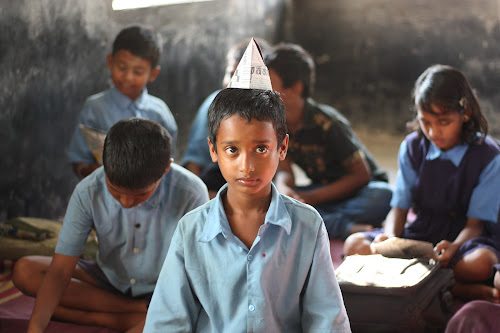VIRTUAL EDUCATION & REDUCED SYLLABUS FOR CLASSES 9-12 : IMPACT ON STUDENTS
 |
| Photo by jaikishan patel on Unsplash |
Yesterday, CBSE released the updated guidelines, keeping in mind the grave situation of Covid-19. The syllabus for classes 9-12 was reduced by upto 30%, also stating the fact that if some topics form the base of other topics, then they have to be taught because that could be asked in indirect ways. Now, this led to the students letting out a sigh of relief since the lockdown had left them puzzled, with the education system resorting to virtual teaching portals like Zoom, Microsoft Teams etc. This was the situation that CBSE kept in mind while taking this decision, as students throughout the country were finding it difficult to access the online portals without the hiccups of disturbed internet connection, lack of attention, etc.
STEPS TAKEN BY GOVERNMENT AND ITS LOOPHOLES
With the announcement of lockdown, things took time to adjust for students and teachers, but the Delhi Government managed to come to a decision, resorting to the online platform Zoom for starting online classes. It had loopholes to it, one being; classes couldn't be started without the assumption that the kids who had gone back to their native villages had stable internet connection to keep up with the speed of online classes. But, unfortunately students were facing a lot of issues, trying to manage a phone from their parents or neighbors who had data packs within them was a huge task as it was unstable. Whereas, for private schools, the situation was comparatively better as students already had access to the internet connections and laptops/desktops were installed. The teaching went on smoothly in comparison to the government schools. Students all over the country are taking time to adapt to this new found system of virtual education and even if they're struggling with it, not much can be done about it.
The teachers too are facing troubles while getting their hands on this new technology and changing their teaching methods and patterns to keep students engaged in the classes. That's because, majority of them are usually getting distracted every now and then. Others faced the problem of getting mocked by students, as this was the first time when students had an upper hand on this online version of things. They had to scale up their skill set by learning to work on Microsoft teams, Zoom, Microsoft Powerpoint and other portals online to make their teaching methods effective and up to date through trainings. The struggle was real as this system was keeping a check of their lessons and they could no longer stick to the conventional methods with no regular surveillance. This virus did somehow manage to upgrade the entire education system in one go, which couldn't have happened otherwise.
REDUCED SYLLABUS AND ITS IMPACT ON STUDENTS
With syllabus getting deducted by upto 30%, teachers are straining over how to teach the students without some chapters as they form the basis for the others. CBSE stated in its guidelines that the chapters that were deleted from the syllabus could be taught by teachers if they had time. This was the major concern i.e. shortage of time, a lot had already been lost due to this upgraded system of virtual education. So for eg., if the chapter of Matrices forms the basis for Determinants and Matrices is deleted from the syllabus, they will anyway have to be taught Matrices for the purpose of base building. This will hurt students in the long run as some important chapters have been deleted without even giving a thought to it. Since many chapters form the basis of their understanding for various subjects ahead, this resolution will have a huge impact on their knowledge. The education system is a bit flawed and we cannot deny that. It reinforces the conventional method of rote-learning and getting marks in examination through the same. Scoring is still seen as a method of retention and knowledge leading to heaps of stress for the students.
STRESSED OUT PARENTS
A recent news article stating a suicide of a father in a North Eastern state over his inability to buy his daughter a smartphone, left me shook. This is where the situation is heading and it doesn't look very good to be honest. Parents who cannot earn enough are bearing the brunt of the rising pressure of this system to prevent their children from losing out on the opportunities lying ahead.
Despite the technology advancement of the education system, this situation holds a variety of opportunities for teachers and students ahead and they shouldn't shy away from it because that's how the world is going to function now. Even though there are several ambiguities to it, but there is no such policy which doesn't have one. India will take some time adapting to the evolved system and hopefully, it will get a hang of it soon. Best thing to do right now is to stay optimistic regarding things as there is already a lot of stress building out there.


Comments
Post a Comment